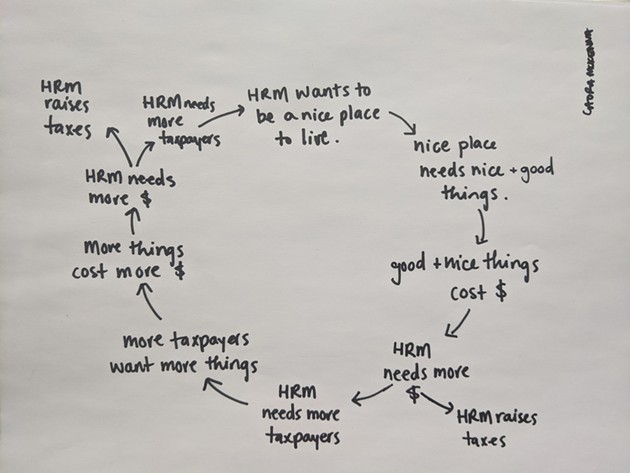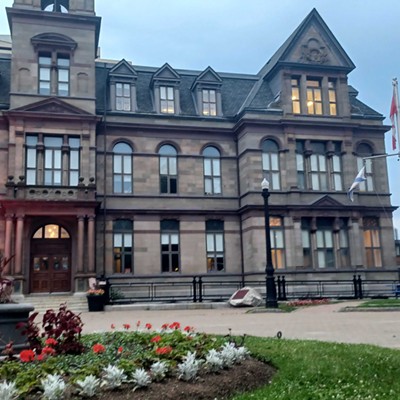
HRM's budget is its road map for spending throughout the year. It lists the municipality's priorities on paper and dictates what gets done and what doesn't.
This year, HRM's finance staff are suggesting a new model for budgeting in the municipality, one that sets it up for longer-term sustainability—especially considering some of the big plans HRM has approved recently that don't necessarily have enough dollars behind them to make them happen.
The presentation also prepped councillors for the possibility of a suggested increase in the property tax rate or increase in debt the municipality takes on. Because Halifax is one of the fastest-growing cities in Canada, there are a lot of pressure points on the municipality to not just keep up—but get ahead.
Implementing HalifACT 2050, the integrated mobility plan and moving in the direction of setting up more services to help Halifax be a more equitable place—while simultaneously trying to attract wealthier residents and new businesses, are all things that cost money. And the majority of the money Halifax has to spend comes from property taxes. (Commercial taxes too, but they make up a smaller portion of HRM's total spending money.) To get more money, there are two main options: Raise taxes, or get more taxpayers.
At Tuesday's meeting, District 7 councillor Waye Mason said the talk of fiscal sustainability is important. And doing it the way HRM's finance team proposes will help navigate “the strategic cost of strategic ambition.”
“The tax rate is something that concerns everybody, but if we are going to introduce new and improved services, that’s gotta be paid for. I think it’s good that we own those things and the impact that our aspirations could have on the tax rate," says Mason.
Compared to other cities, Halifax's property tax rate is fairly low, and councillors have fought to keep its increases minimal in the past. Bruce Fisher, manager of financial policy and planning, explained a common confusion for people who move here from other cities and see their rates go up. Click play to see how he explains it.
Halifax's CFO Jane Fraser—along with Fisher—explained that HRM is looking to move toward a model that more accurately attaches a tax rate to the services a person receives. This is called service-based budgeting, and in the long run it means HRM will be better able to tell which residents are getting use of which services. From there, HRM can better spend its money.
But this becomes challenging work trying to calculate the value of a service based on access and benefit. Councillor Shawn Clearly wants to make sure the definition of "who benefits" is very broad. Using the example of transit to say that even if someone doesn't have a bus that reaches their house, if they go downtown to run errands, better transit means more people on buses and less congestion for them while driving downtown. Or a business owner who benefits from better transit because they don't have to pay for more parking spots for their employees.
And a danger that could arise from this is that often, the people who benefit most from HRM services are renters—meaning they don't pay municipal taxes directly to the municipality.
The full roll-out of a service-based budget is still in the works. For the upcoming fiscal year, business units will still present their budgets to council, likely coming in with a couple "asks" for money above their allotted budget—like Halifax Regional Police did to the board of police commissioners this week.
Council will debate over those things, and then debate over how to pay for everything. Whether it's taking on more debt, dipping into reserve accounts, raising the tax rate, or some combination of all three.
The nitty-gritty of the budget talks will take place starting when council returns in 2021, as this was council's last meeting for this wild year.
Catch up on everything else that happened at council this week by checking out The Coast's Instagram highlight (click here if you're on desktop, click here if you're on mobile).
















